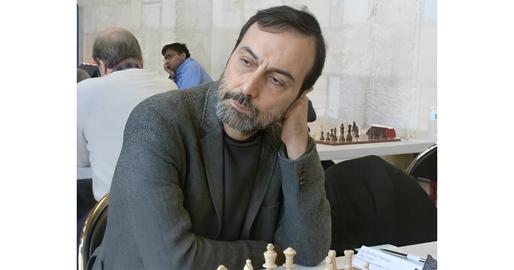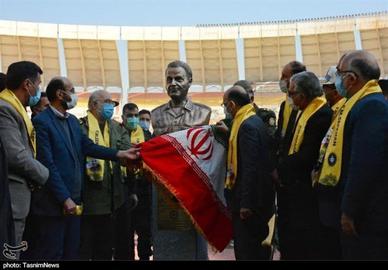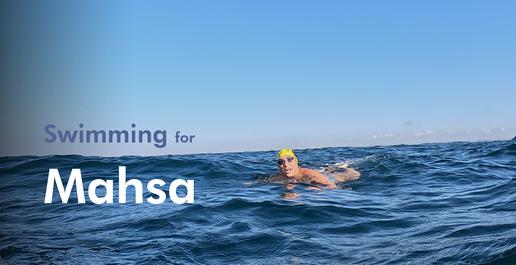July 20, the day the International Chess Federation (FIDE) was founded in 1924, was named International Chess Day by UNESCO in 1966.
FIDE has 181 national chess federations as its members, including the Islamic Republic of Iran. But, in the past decade, this sport has fallen victim to two central planks in the ideology of Supreme Leader Ali Khamenei in Iran: enmity toward Israel and forced hijab.
***
Banned to Play against Israelis
After the 1979 Islamic Revolution, chess was said to be haram, or forbidden according to Sharia law. A number of religious authorities and Friday Imams believed that chess was a kind of gambling and, as such, could not be allowed in the Islamic Republic.
Committed chess players were forced to go underground. One of the first great chess masters to escape the country was Kamran Shirazi, who took asylum in the United States. From 1984 to 2005, he played at international competitions for that country and, from 2006, he has been playing for France.
Then, in 1987, Ayatollah Ruhollah Khomeini, the founding father and the first supreme leader of the Islamic Republic, announced that chess was now halal (permitted), provided that gambling is not involved. He even admitted the game's many virtues if played “in moderation.”
It took more than three decades after Khomeini’s fatwa, or religious edict, for chess to flourish again in Iran. But the moment that happened, the Islamic Republic’s ideology undermined the sport.
In February 2017, the 15-year-old chess prodigy Borna Derakhshani played against an Israeli player at Gibraltar Chess Festival. After that, the Islamic Republic’s Chess Federation banned him for life from all tournaments held in Iran and from the Iranian National Chess Team.
Derakhshani wrote a letter to the English Chess Federation, requesting to play for the UK. His request was accepted and he moved to the UK. Since then, he has won several competitions.
In 2019, Alireza Firouzja, another Iranian chess prodigy, left Iran because he was not allowed to compete against Israelis.
Firouzja was only 13 when he defeated the Iranian chess grandmaster Ehsan Ghaem Maghami, and he earned the title of Grandmaster at the age of 14. At 16, he became the second youngest player in history to reach a rating of 2,700 or above. He won a silver medal at the 2019 World Rapid Chess Championship.
Then suddenly came the news he had changed his nationality from Iranian to French.
At the age of 18, he won the FIDE Grand Swiss Tournament 2021 and a gold medal at the European Team Chess Championship. He also won a bronze medal at the 2021 World Blitz Chess Championship. Firouzja won the 2022 Grand Chess Tour.
The exodus of talented Iranian chess players also included, but was not limited to, Elshan Moradi and Amir Bagheri who, in recent years, have played at international competitions under the flags of the United States and France, respectively.
In 2019, the Ministry of Sports prevented the National Chess Team from competing at an international tournament in Russia because the Islamic Republic did not want Iranian players to participate in competitions where the chances of having to play against Israelis was high. That’s the reason why Firouzja decided to compete under the French flag. Since then, he has been one of the three highest-ranking chess players in the world.
Leaving Iran to Escape Forced Hijab
Mandatory headscarf rules have claimed more victims among Iranian chess players than the ban from competing against Israelis.
In 2017, the World Chess Federation announced that Borna’s sister, Dorsa, the second female chess grandmaster in Iran’s history, was leaving the country to play for the United States.
She was banned from playing chess for Iran in February of that year because she did not wear a hijab during the 2017 Gibraltar Chess Festival.
In an interview with Beyond Chess in December 2016, Derakhshani said: “I once wore a formal sort of hijab (we have different ones depending on the occasion) that was seriously disturbing me...On the other hand, in Iran people know and accept that foreigners are neither familiar (nor particularly willing) to wear a hijab.”
In addition to her somewhat dismissive remarks about the Islamic headscarf, she commented on the Islamic Republic’s ban on chess: “You may know we had a revolution in Iran in 1979. As a result, chess was forbidden for more than a decade since it was regarded as a sort of gambling. In this period, chess was still secretly played in backyards but obviously there was no systematic approach for training or tournaments. This explains why chess culture generally still lags behind in Iran compared to other countries.”
In January 2020, Mehrdad Pahlevanzadeh, the president of Iran’s Chess Federation, expelled female grandmaster Mitra Hejazipour from the national team for failing to wear a headscarf during the World Rapid & Blitz Chess Championship in Moscow. "She has no place in the Islamic Republic's national team anymore," Hejazipour said.
“My life was dominated by forced hijab,” Hejazipour wrote in an Instagram post after moving to France. “Forced hijab is a clear symbol of an ideology that considers women as the second sex.”
Hejazipour won the silver medal at the World Under-10 Girls Championship in 2003 and the Iranian Women's Championship in 2012. In 2015, when she was only 13, she earned her grandmaster title after winning the Asian Continental Women's Championship.
In June 2020, the website of the International Chess Federation removed the Iranian flag next to the name of woman grandmaster Ghazal Hakimifard and replaced it with the flag of Switzerland. In 2010, when Hakimifard was 15, she came in seventh place at the World Under-16 Women's Chess Championship in Halkidiki, Greece.
Another well-known figure in Iranian chess was FIDE chess arbiter Shohreh Bayat who, in October 2020, was granted asylum in the UK. She came under attack when media outlets affiliated with the Islamic Revolutionary Guard Corps published a picture of her without the mandatory hijab. “All my life was about showing a fake image of myself to society because they wanted me to be an image of a religious Muslim woman, which I wasn’t,” she said from her temporary home outside London after applying for asylum.
In 2021, Bayat received the US secretary of state's International Women of Courage Award for her brave decision.
On January 3, 2023, Reuters reported that Iranian chess player Sara Khadem had gone to Spain after reportedly receiving warnings not to return to Iran. Khadem had competed without a head covering at an international tournament in Kazakhstan.
Khadem received multiple threatening phone calls during the tournament, after which four bodyguards stationed outside her hotel room, a source close to the player said.
Removing the hijab was "something that I thought was right to do and I don't regret anything," she said in an interview in February. Removing the hijab is “one of the symbols” of the anti-establishment protests that swept Iran last year, she also said, adding, “I also decided to finally do something that I wanted to, to be myself...I was motivated by the people of Iran."
visit the accountability section
In this section of Iran Wire, you can contact the officials and launch your campaign for various problems

























comments